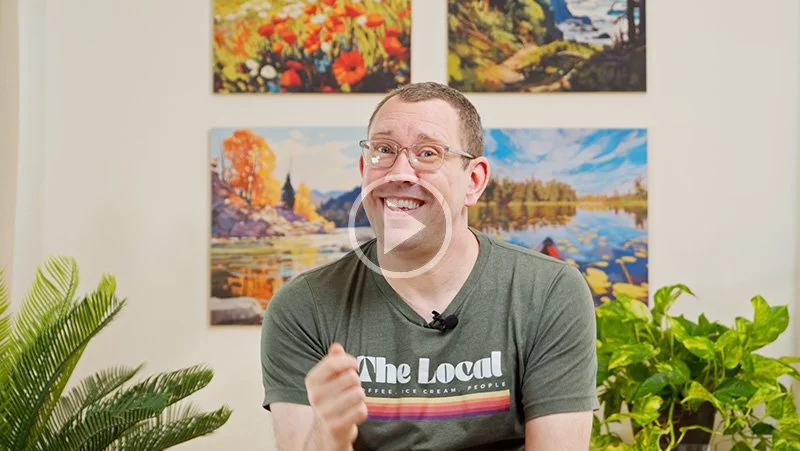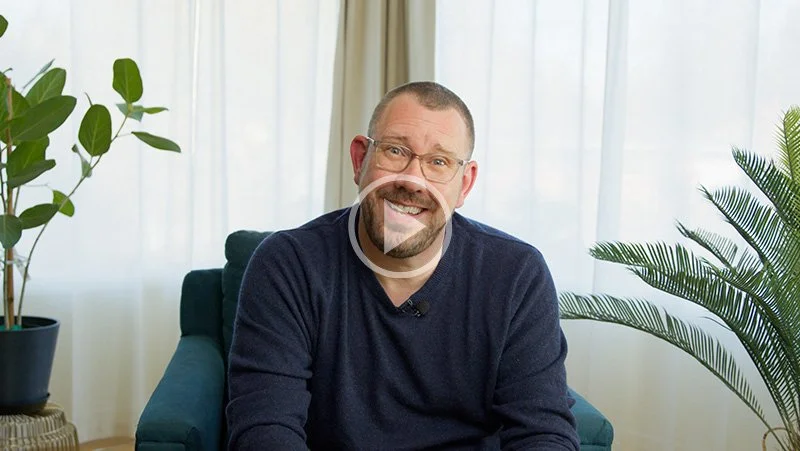How to Recover from a Heated Argument
Welcome to the #culturedrop. Every Tuesday, Galen Emanuele emails tools to advance leadership skills, team culture, and personal growth. No spam, just great content. Sign up now to get it in your inbox.
Let’s say we had a heated argument, a blowout, a bad interaction. Where do we go from here?
How do we sort of pick up the pieces and heal that situation, a relationship and move forward?
5 steps to pick up the pieces and go forward.
1. Reflect
Take an honest inventory of how you showed up in that interaction.
Take a look at the things that you said, how you contributed to that situation. If you became emotionally charged or fired up, what things caused that for you?
Remember that some of those things don't belong to the other person. There are things that trigger you because your mom did them, or they bring up memories from your past. Take ownership of how you showed up and really reflect about how did you contribute to that? What things happened in that that you aren't proud of, that you wouldn't want to repeat, how did you contribute to things escalating to how they did and just really take an ego-free look at how did I make that worse? How did I contribute to that? What was my part in egging on the other person and elevating them? Just an honest reflection, inventory of, how did I show up there?
2. Extend an invitation
Assuming you want to repair this relationship, step number two is to go back to that person and invite them to have a conversation.
Be like, “Hey, that didn't go the way that either of us liked, that didn't feel great. Are you open to revisiting that? Can we have a conversation? Can we sort through what happened and talk about that? I'd like to hear your perspective and, obviously, I don't want to leave things where they are.”
It's nice to invite someone versus force that conversation upon them.
The invitation is a nice, soft way into, “Hey, I'd like to talk about what happened. I'd like to sort of make this right.”
3. Take ownership and apologize
To start off the conversation, to come back to that conversation with that person after you've reflected, I think it's great to be like, “Hey, I just need to take ownership of these things that I said, that I did, that I became emotionally heightened.”
Really take ownership of how you contributed to that situation and apologize, find areas to make amends, acknowledge the behavior you aren’t proud of.
4. Allow everybody to empty their cups.
“Empty your cup,” I love this phrase, I stole it 😉 I've heard a number of places, but I think specifically from my friend Tina Radeke (she's brilliant).
Give both people an opportunity to explain themselves in a time when it's not dialogue back and forth.
So for me, if I'm coming to you and saying, I want you to just empty your cup, everything that's going on for you, your perspective, assumptions, your feelings, just give the other person an opportunity for 3, 4, 5 minutes or longer to just talk without me responding, without having any rebuttals, just to hear them out.
And at the end of them talking, I will recap what I heard. This is what I heard you say, you feel like this, you feel like this.
When that person has gone, give me an opportunity to do the same thing. These are assumptions I've made. These are things that I'm feeling. This is what triggers me. This is why this thing bothers me, etc.
What this accomplishes:
It gives both people a chance to empty their cup without interruption, just to be heard and listened to and then repeated back what they said. It’s extremely useful for clarifying and understanding each other without having to defend or deflect or change your opinion, just to listen, and feel listened to.
5. Growth
This is the opportunity for you to reflect after having heard each other out and contemplate what went wrong. Now that you have a deeper understanding of each other, you’ve made some clarifications in terms of where you’re both coming from, it’s an opportunity to say, “Moving forward, how can we avoid these types of interactions? Here’s what I’m willing to do going forward, taking into account what you said.”
It's a chance for both people to say, “This is our agreement going forward in terms of how we'll handle these things. What to be aware of around the other person, things that trigger them, etc, that we can avoid so that we can hopefully not have these kinds of interactions again in the future.”
This covers a lot of different relationships at work, personal, romantic relationships, etc. It’s an important conversation. The ability to do this when we slip up, when we have bad interactions.
The most important thing is don't repeat things. It doesn't mean anything to apologize to someone and then do the exact same thing two or three or four more times.
When you apologize, mean it.
When you have these conversations, take to heart what you hear from the other person so that you can have a better relationship moving forward. We don't repeat the same mistakes.
Go be awesome.
Want more?
This article was created by Galen Emanuele for the #culturedrop. Free leadership and team culture content in less than 5 minutes a week. Check out the rest of this month's content and subscribe to the Culture Drop at https://bit.ly/culturedrop







